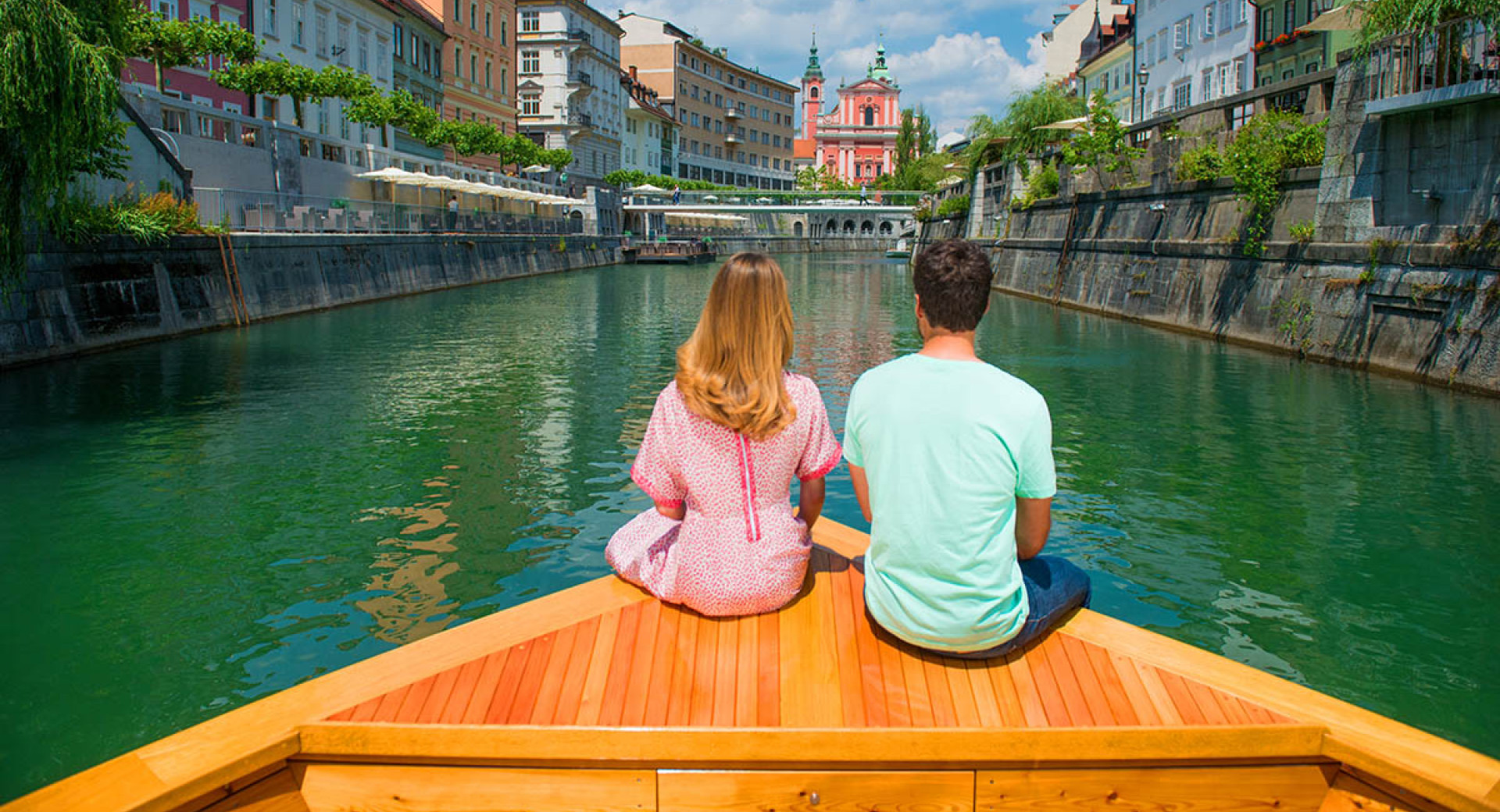Vision and strategy
With its genuine sustainability and romantic backdrop, Ljubljana offers a refined and enchanting blend of Mediterranean atmosphere, enticing gastronomy and diverse, select year-round experiences for all the senses, while being nestled in an Alpine environment.Ljubljana Tourism’s vision for Ljubljana is that by 2027 it is recognised as the leading and most creative urban sustainable lifestyle destination in the world.

Tourism development strategy was developed in cooperation and dialogue with more than 100 partners from the municipal and national government, tourism stakeholders within the City of Ljubljana and the region, as well partners on national level. On the basis of analysis, interviews and strategic workshops, we have identified and selected seven unique selling points that best reflect the uniqueness of Ljubljana:
- Well-being - In Ljubljana you simply feel good!
- Romantic backdrop - Ljubljana is romantic!
- Genuine sustainability - Ljubljana means sustainability!
- Enticing gastronomy - To Ljubljana for gastronomic pleasure!
- Diversity and solidarity - Ljubljana is characterised by diversity and solidarity!
- Creative atmosphere - Ljubljana is creative!
- Plečnik’s legacy - Plečnik’s Ljubljana is one of the most important total works of art of the twentieth century!
At Ljubljana Tourism we work hard to increase the added value of tourism and achieve sustainable growth through high-quality green and innovative products that will also contribute to positioning Slovenia as a green boutique destination for five-star experiences. Our vision is coordinated with the overarching vision of Slovenian tourism at the national level. At the same time, Ljubljana will remain a city with a high quality of life and a pleasant atmosphere for all its inhabitants, visitors and tourists.
In order that Ljubljana as a destination can achieve our vision, we have set ourselves some overall qualitative and quantitative goals for the strategic period 2021–2027.
Qualitative goals
1. Satisfied local inhabitants and tourists
Tourism development activities will be aimed in improving the satisfaction and quality of life of local inhabitants.
2. Development and diversification of tourism supply outside the city centre
In order to avoid overcrowding in the city centre, the development of new tourism products will take place in less developed and undervalorised areas of the city.
3. Improved accessibility and sustainable mobility
Improving accessibility and promoting sustainable mobility within the destination will be one of our key focuses for the years to come.
4. International recognition and awards
We believe that Ljubljana is a world-class destination and should be recognised as such throughout the world.
5. Development of an internationally recognised brand
An integral part of the future development of the destination will be the development of a brand that will communicate its USPs and desired positioning and support future marketing activities.
Quantitative goals
- 14% annual growth in overnight stays by 2027
- 4% annual increase in average daily expenditure per tourist by 2027
- Extend the length of stay to between 2.5 and 3 nights by 2027
- Increasing the number of direct air connections from 9 in 2020 to 25–30 in 2027
At Ljubljana Tourism we develop, promote and market the following principal tourism products
Meetings industry
The meetings industry has been identified as a key development driver in Ljubljana with extremely promising development plans, particularly with the new conference hall and new hotel capacities.
Meetings industry tourism will change significantly over the next decade, Ljubljana has the opportunity to become a leading player in this market, provided measures are taken to modernise and improve the product.
City breaks
City breaks are already a well-established tourism product, but with further development could bring greater benefits to the destination. Thanks to an excellent location between the Mediterranean and the Alps, Ljubljana is ideally situated for the development of tourism, and for this reason city breaks are one of the pillars of the further development of tourism.
Gastronomy
The current gastronomic tourism product includes components such as high-quality restaurants, creative food and wine tours, a lively local food market, various food shops and attractive food-related events that offer a good starting point for the further development of gastronomy products. The key to the smart commercialisation of gastronomic tourism is the provision of unforgettable experiences connected to food and ensuring adequate exposure via social media and entertaining food-and-drink-based programmes on television and online. Owing to the quality of the gastronomic offering and its marketing potential, gastronomic tourism is defined as a key tourism product for the further development of Ljubljana.
Among supporting tourism products in Ljubljana, events have the biggest potential to become a key tourism product in the medium to long term, while culture and sport will continue to play a role as important supporting products in the destination and will be a strong focus of the future development of tourism.
Improving competitiveness
In order to develop initiatives focused on the creation of innovative tourist experiences, extending the average length of stay in the destination, increasing tourists’ daily expenditure, linking tourism to other important sectors, five main groups of competitiveness programmes have been defined.
- Creating and enhancing events
- Sustainability concept
- Enhancing cooperation among stakeholders
- Urban touristification
- Accessibility and mobility
Within the defined main groups of competitiveness programmes, we have developed twenty initiatives that represent the focuses and operational goals of our activities in the next strategic period.
These groups of competitiveness programmes will have an effect on the tourism sector and will increase the quality of life of local inhabitants. They will help diversify tourism to other, less-visited areas of the city, which in turn will contribute to the further sustainable development of Ljubljana. The competitiveness programmes were defined in accordance with the analytical phase of the project and contributions from the strategic workshops, where the aim was to discuss those areas in the destination that need enhancing and areas with the greatest potential for further development and impact on the future position of Ljubljana in the world tourism market.
